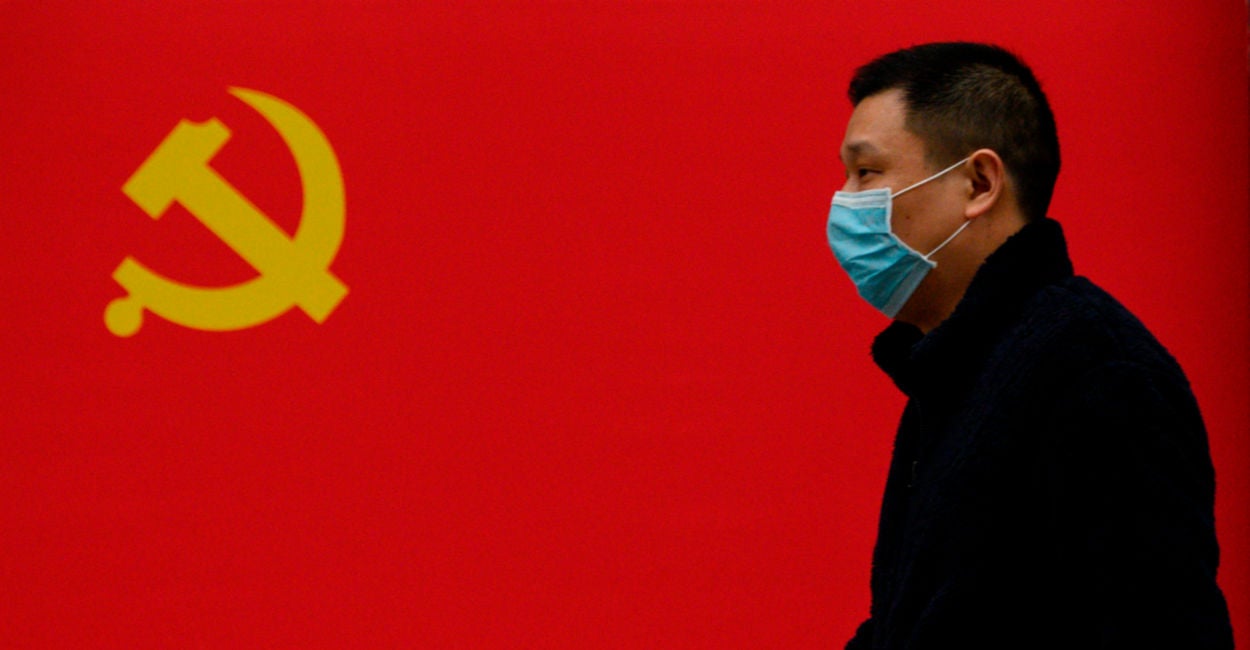[ad_1]
The devastation caused by the COVID-19 pandemic is compounded by the possibility—some would say likelihood—that it could have been averted or its impact mitigated.
If, for example, China failed in a timely manner to disclose the threat of the new coronavirus or misrepresented its cause or severity, there could be political or economic consequences.
But could China actually be sued by COVID-19 victims? Missouri appears to think so and filed suit in federal court Tuesday.
>>> When can America reopen? The National Coronavirus Recovery Commission, a project of The Heritage Foundation, is gathering America’s top thinkers together to figure that out. Learn more here.
Suing a government is different than suing private individuals
or companies. The first, and biggest, hurdle is the legal principle, often
called sovereign or state immunity, that a government cannot be sued without
its consent.
In the U.S. Constitution, this principle is the basis
for the 11th Amendment, which prohibits lawsuits in federal court
“against one of the United States by Citizens of another State, or by Citizens
or Subjects of any Foreign State.”
Sovereign immunity, however, is not absolute. A
government can give its consent to be sued in certain circumstances or can
waive its immunity in different ways.
Congress enacted the Foreign Sovereign
Immunities Act (FSIA) in 1976 to clarify the circumstances in which a
foreign government can be sued in American courts.
It says that “a foreign state shall be immune from the jurisdiction of the courts of the United States and of the States except as provided in” that law. The Supreme Court has said that the FSIA is “the sole basis for obtaining jurisdiction over a foreign state in the courts of this country.”
China, therefore, can be sued by COVID-19 victims only if the suit fits within one of the exceptions in the Foreign Sovereign Immunities Act.
On April 21, Missouri filed suit
in U.S. District Court against the People’s Republic of China, several Chinese
government entities, the Wuhan Institute of Virology, and the Chinese Communist
Party.
Missouri alleges that China misled the World Health Organization about the nature of the coronavirus that causes the disease COVID-19, allowed it to spread, delayed reporting evidence of human-to-human transmission, and even censored information about it.
Those actions, Missouri says, allowed the virus to
spread rapidly around the world, into the United States, and into Missouri. The
lawsuit claims that these actions violated Missouri law and harmed Missouri
residents.
Missouri claims that two Foreign Sovereign Immunities Act exceptions permit this lawsuit.
The “commercial activity” exception covers cases
involving “commercial activity carried on in the United States by the foreign
state” or acts within the United States in connection with commercial activity
by the foreign state elsewhere.
Missouri says that operating the Chinese health care
system, conducting medical research, and operating social media platforms are
all “commercial activity” in China that caused direct effects in the United
States.
Second, the Foreign Sovereign Immunities Act’s “noncommercial torts” exception covers tortious acts by a foreign state or foreign official “acting within the scope of his office.” This exception, however, does not cover “discretionary” government functions. Missouri claims that China’s actions in China amount to torts in Missouri.
Missouri claims that the Chinese Communist Party is not
entitled to any immunity because it “is not a foreign state or instrumentality
of a foreign state.” At the same time, the lawsuit claims that “the Communist
Party’s General Secretary becomes the president” of China and that the party
“exercises direction and control over all other Defendants.”
None of the allegations in the complaint are specific to
the Chinese Communist Party and, therefore, it is unclear what Missouri seeks
from the party separately from the government of China.
In a related effort, some members of Congress have introduced legislation to provide a clear Foreign Sovereign Immunities Act exception that would allow lawsuits against China by COVID-19 victims.
On April 14, Sen. Josh Hawley, R-Mo., announced the Justice
for Victims of COVID-19 Act. According to a press release
from Hawley’s office, it would make the Chinese government liable in U.S.
courts for reckless actions that caused the pandemic, allow U.S. courts to
freeze Chinese assets to enforce successful claims, and create a State
Department task force to lead “an international investigation” to determine how
Chinese actions caused the pandemic.
Two days later on April 16, Rep. Dan Crenshaw, R-Texas,
and Sen. Tom Cotton, R-Ark., introduced the Holding the Chinese Communist Party
Accountable for Infecting Americans Act.
The bill would amend the Foreign Sovereign Immunities Act to allow a lawsuit against a foreign state that deliberately conceals or distorts information with respect to an international public health emergency.
Either of these, litigation or legislation, is a long path. The courts may conclude that the Foreign Sovereign Immunities Act’s current exceptions do not apply and, therefore, U.S. courts have no jurisdiction for a lawsuit against China.
Even if jurisdiction is established, either initially or
after successful appeals, the merits of the lawsuit itself would have to be
pursued through the court system. And then, if COVID-19 victims win their case,
forcing China to actually provide the compensation the victims seek presents
its own set of challenges.
The legislative effort is even longer, especially in the current political environment. Neither Crenshaw nor Cotton serve on their respective bodies’ Judiciary committees, which would have jurisdiction over their bills.
The COVID-19 pandemic is in full swing, and information about China’s actions is only beginning to unfold. There likely would be extensive hearings, and Congress no doubt will consider the possibility of sparking legal developments that could increase legal exposure in other countries for the United States or its citizens.
And even if either bill became law, it would only open
the door to litigation.
Nonetheless, the American people need to know how China
contributed to the pandemic that is so deeply affecting everyone and what can
be done to hold Beijing accountable.
[ad_2]
Read the Original Article Here

